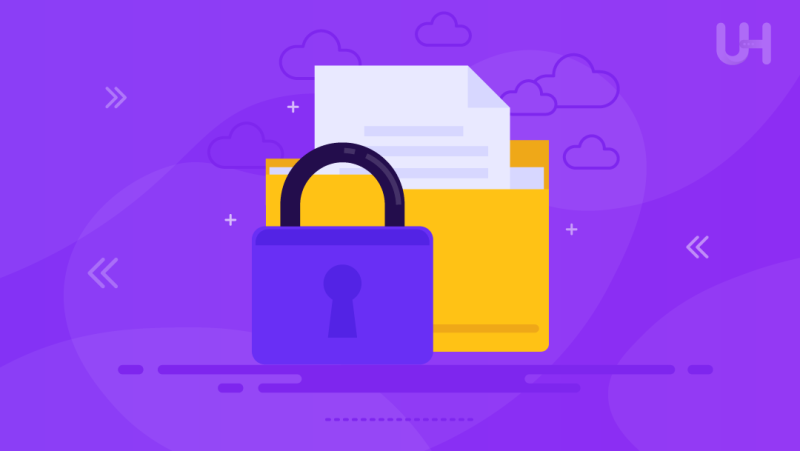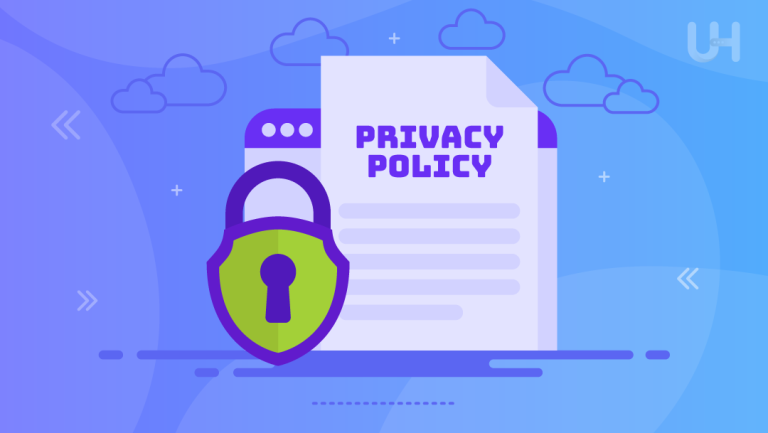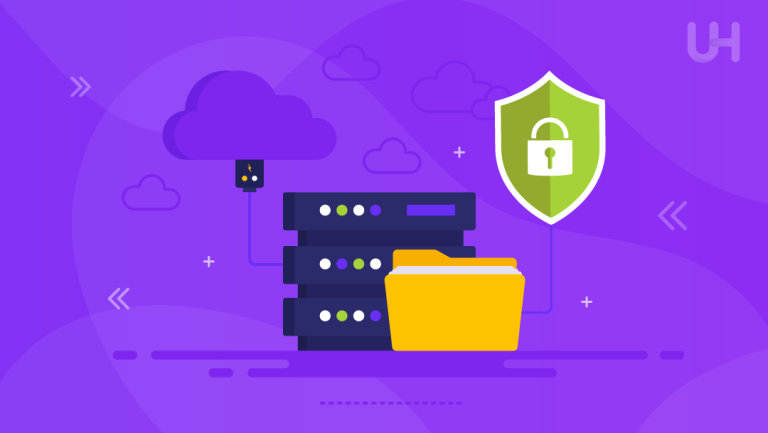Data privacy impacts our daily lives both online and offline. With the increasing amount of information we process and share through the internet and other technologies, it becomes clear why safeguarding our data is extremely important.
Data privacy encompasses our names, email addresses, or phone numbers but also more sensitive information like medical or financial data. When purchasing services, whether it’s web hosting, books, or a streaming subscription, you need to take care of your security. Understanding what is data privacy, its implications, and why it’s worth protecting forms the foundation of understanding the digital world we operate in.
Data Privacy Definition
The term refers to individuals right to control information about their identity, personal life, and online activities. It involves guaranteeing the safeguarding of personal data against unauthorized access, use, or disclosure. Data privacy definition covers both identifiable information and sensitive personal data, including home addresses, identification numbers, medical histories, or financial information.
The essence of data privacy is enabling individuals to have control over their data. This means that people have the right to decide who can access their data, how it’s used, and for what purpose it’s processed. This control is a crucial element of individuals’ autonomy in a world where data collection and processing are ubiquitous. Fortunately, data protection is already highly advanced. There are excellent encryption protocols that encrypt transfers as well as advanced methods of hard drive protection.
Data protection is a matter of law, ethics, and respect. The security of personal data is crucial for building trust in social, economic, and institutional relationships. Understanding data privacy definition is essential because the volume of data online is constantly growing, presenting us with new challenges and threats.
Why is Data Privacy Important?
Data privacy breaches transcend theoretical concerns and manifest as issues with tangible consequences. Examples of incidents are plentiful and demonstrate how widespread and deep the impact of data privacy breaches can be.
Identity theft can lead to drastic financial and personal consequences for the victim, who may struggle to recover lost funds and restore their reputation. Financial abuses, such as money theft from bank accounts or credit card fraud, can also seriously harm an individual’s financial stability. Even seemingly minor misuse of personal data, such as using it for advertising purposes without consent or in a manner inconsistent with its original purpose, can lead to feelings of privacy violation and loss of trust in organizations.
Protect Your Data with UltaHost
Experience the freedom of anonymous VPS hosting with Ultahost! Our advanced hosting solutions ensure your privacy while giving you full control over your online activities. Don’t compromise on security – switch to Ultahost and take charge of your online presence today!
These incidents can expose individuals to blackmail or harassment from cyber criminals, which can have serious emotional and psychological consequences. Hence, organizations that engage in data privacy breaches must face severe consequences. In addition to financial penalties and reputational damage, they may also face legal and civil actions from affected individuals and regulatory bodies, which can lead to significant financial and operational losses.
Pursuing and punishing is one thing, but prevention is also necessary. Therefore, it’s important to properly protect websites from malware attacks, utilize the latest encryption solutions for connections, and maintain regularly updated security systems.
Human Rights and Data Privacy Protection
Human rights serve as the foundation for data privacy protection on an international level. The European Convention on Human Rights and the Universal Declaration of Human Rights are just two of many international documents that guarantee individuals the right to privacy and data protection.
These documents recognize that privacy is a fundamental human right that should be respected and protected worldwide. Ensuring data privacy protection enhances individuals’ autonomy and dignity while also contributing to building social trust and maintaining a balance between individual freedom and societal interests.
In the context of international human rights standards, data privacy protection is therefore not only an ethical issue but also a legal and social one, crucial for respecting the dignity and freedom of individuals.
How to Protect Privacy?
Awareness is key to protecting data privacy. Educating individuals about the importance of data privacy, risks associated with internet usage, and ways to protect personal data can significantly reduce the risk of privacy breaches. Educational campaigns, seminars, and workshops can help raise public awareness about the need to be cautious when sharing information online and using various online platforms.
Encouraging the development of skills to identify threats like phishing or malware, promoting regular software updates, and advocating for the use of strong passwords are also crucial components. Popularizing safe internet usage practices can minimize the risk of attacks.
Data privacy protection involves both technological and legal measures. Technologically, many tools and strategies can help ensure the security of personal data, such as antivirus software, firewalls, and encryption tools. An excellent solution is to run a blog anonymously, which will help to some extent protect the author of such a blog from various privacy threats.
Regarding personal data processing, compliance with laws such as the General Data Protection Regulation (GDPR) in Europe is crucial. Organizations should develop and implement appropriate policies and procedures for data protection and provide training for employees on compliance with data protection regulations. Utilizing a Google consent management platform can further aid in ensuring compliance with privacy regulations and managing user consent efficiently.
Another important aspect is regularly assessing the risks associated with data processing and responding to any privacy breaches by applicable legal requirements. For those looking to enhance their privacy, data broker removal services can be an effective solution to manage and secure personal information.
The Importance of Data Privacy in Various Contexts
In the context of interactions with governments, safeguarding data privacy becomes notably significant given the state’s involvement in gathering, retaining, and handling citizens’ information. Upholding data privacy is pivotal for preserving the equilibrium between governmental requirements and individual liberties.
Governments often collect personal data to ensure national security, provide public services, and conduct administrative activities. However, excessive collection and misuse of personal data can lead to privacy breaches, limitations on civil liberties, and potential abuses of power. Therefore, governments need to employ appropriate procedures and safeguards to ensure transparency, fairness, and limited access to personal data only to the necessary minimum.
Importance of data privacy in the context of relations with businesses results from consumer trust and maintaining the integrity of customer data. Companies collect, store, and process their customers’ data on their dedicated servers for service provision, marketing, and market analysis.
However, the misuse of this data can lead to privacy breaches, loss of trust, and legal and reputational consequences for companies. Therefore, they must comply with relevant legal regulations regarding data protection, such as GDPR in Europe or the Employee Code in the United States.
Additionally, companies should implement appropriate technological measures and security procedures to prevent unauthorized access to data and respond to any privacy breaches swiftly and effectively. SSL certificates, a set of effective antivirus systems, and VPS hosting with SSH are basic preventive measures against abuses. Striving for transparency with customers and building trust through proper customer data management is essential for the long-term success of companies in the digital age.
Conclusion
You must know what is data privacy because it is an immensely important issue in today’s digital world, where the amount of collected personal information is constantly growing. There are still many challenges related to data privacy, such as the increasing number of cyberattacks or increasingly complex legal regulations. Therefore, individuals and organizations need to continue learning and expanding their knowledge and skills in the field of personal data protection.
It’s important to note that safeguarding data privacy extends beyond the digital realm to our everyday offline activities. Hence, adhering to best practices for data protection both online and offline is advisable. By doing so, everyone plays a part in fostering a secure and accountable environment for all users.
You need to choose something more powerful than virtual hosting? We have prepared a Fully Managed Dedicated Server for you! Our robust Linux security features and secure FTP access guarantee you full protection from threats. Our expert team handles server management, ensuring optimal performance and security for your dedicated server. Let us demonstrate the difference!
FAQ
What does data privacy encompass?
Data privacy covers a wide range of personal information, including names, email addresses, phone numbers, as well as more sensitive data like medical histories or financial information.
Why is data privacy important?
Data privacy breaches have tangible consequences, such as identity theft, financial losses, or loss of trust in organizations. Protecting data privacy is crucial for maintaining personal autonomy and trust in social, economic, and institutional relationships.
How can I protect my privacy online?
You can protect your privacy online by promoting awareness of data privacy, developing skills to identify threats like phishing or malware, updating software regularly, and using strong passwords. Additionally, utilizing encryption tools and complying with data protection laws like GDPR can enhance privacy.
What measures can businesses take to ensure data privacy?
Businesses should comply with relevant data protection regulations, implement technological measures like SSL certificates and antivirus systems, and maintain security procedures to prevent unauthorized access to data. Building trust with customers through transparent data management is essential for long-term success.













